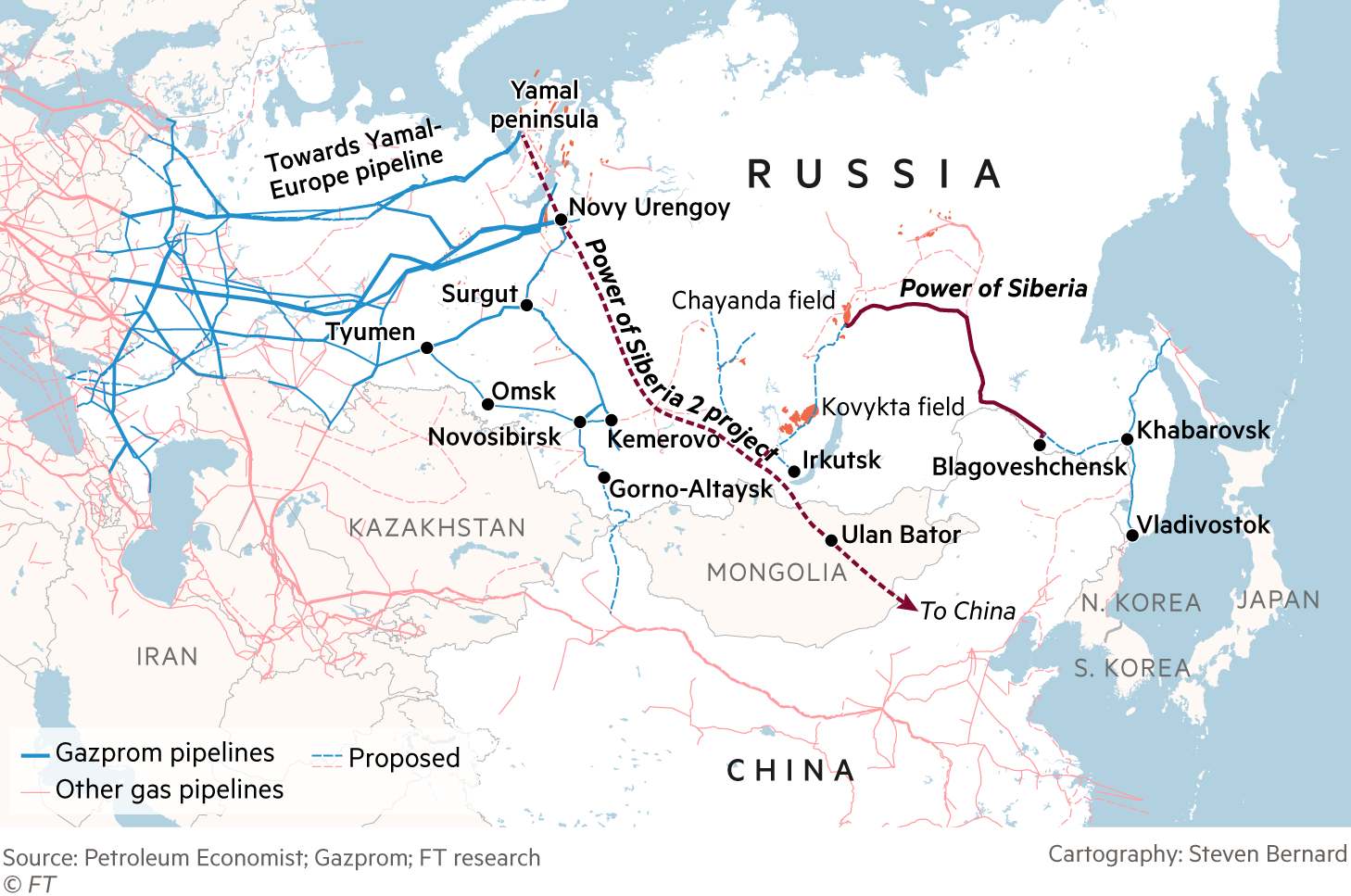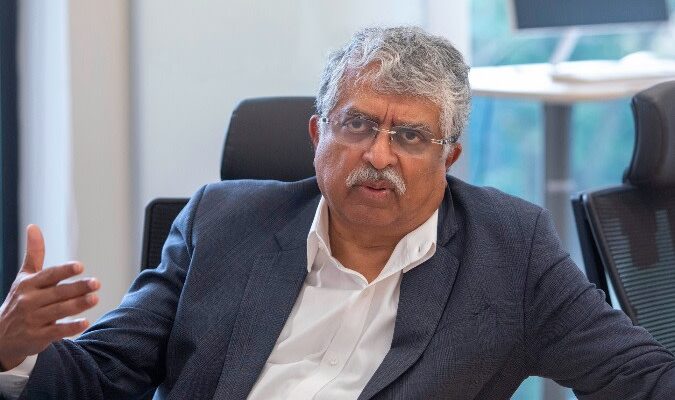Unlock the Editor’s Digest for free
Roula Khalaf, Editor of the FT, selects her favourite stories in this weekly newsletter.
China and Russia have signed an agreement to build the Power of Siberia 2 pipeline, a huge gas project that could reshape global energy flows as both countries seek an alternative to Donald Trump’s US-led global order.
Russia announced the deal as President Vladimir Putin met his Chinese counterpart Xi Jinping in Beijing on Tuesday. Russia’s pipeline gas monopoly Gazprom said the two sides had signed a legally binding “memorandum of construction” after years of stalled negotiations.
However, the document covered general terms and omitted details on pricing, the main stumbling block. China did not immediately comment.
“Talks will now focus on financing the pipeline’s construction and the commercial terms of supply,” Gazprom’s chief executive Alexei Miller said on Tuesday in Beijing, according to state newswire Tass.
He promised to “provide the commercial details” separately but said a long-term gas deal would run for 30 years.
Even without clarity on costs, the deal signalled a significant shift in the global gas market. Once built, in the early 2030s, the 50bn cubic metre-a-year Power of Siberia 2 pipeline will run east from the gasfields that once served Europe. It also gives China an alternative to importing liquefied natural gas (LNG) from the US, Qatar and Australia.
The project may change the economics for companies currently considering whether to invest further in building LNG export terminals, particularly in the US, said Anne-Sophie Corbeau, a global research scholar at the Center on Global Energy Policy at Columbia University.
“This is a very clear signal . . . suddenly we are removing 50 bcm [of demand] from the equation. For the people who want to take final investment decisions now, I would be a little concerned,” she said.
The three-way talks also involved Khurelsukh Ukhnaa, president of Mongolia, through which the pipeline will run, said Russian state newswire Interfax.
Moscow and Beijing also signed “commercial agreements” to increase supplies through existing routes by 8 bcm, with the aim of bringing total annual flows to 56 bcm before the new pipeline was built, said Miller.
Chinese state media did not mention the gas deals, saying only that the two sides had signed more than 20 co-operation documents, including in the energy sector. They quoted Xi as saying: “‘Hard connectivity’ should be a key direction, by actively promoting cross-border infrastructure and energy projects linking the three countries.”
The Russian announcement was “a bit premature”, said Victor Gao, chair of the China Energy Security Institute. “This may be more [a signal] of their intent rather than an agreement already reached,” he added.
The commercial details of Power of Siberia 2 that are yet to be agreed will prove crucial for Russia as its energy revenues decline and Gazprom struggles to stay afloat.
Alexander Gabuev, director of the Carnegie Russia Eurasia Center in Berlin and a China expert, said the expansion of the existing pipelines appeared to be “a real deal” but that with the PS2 agreement, China was in effect signalling “yes, we’re interested, we accept the route through Mongolia — but let’s talk about price and terms”.
But he added: “A legally binding memorandum without a price or timeline is not a final agreement.”
Russia is already the largest supplier of pipeline gas and the third-largest provider of LNG to China after Australia and Qatar. The new pipeline would sharply increase China’s energy purchases from its neighbour and help compensate for Russia’s loss of markets in Europe after it invaded Ukraine.

Chris Beddor, deputy research director at Gavekal, said this year’s war between Israel and Iran may have influenced Beijing’s thinking.
“China has long been reluctant to increase its energy import reliance on Russia, but the Middle East conflict underscored that they just don’t have a lot of risk-free options,” Beddor said.
Corbeau said that after the new pipeline was built, China would be reliant on Russia for about a fifth of its gas. “China will import around 100bn cubic metres of Russian pipeline gas, and another 20-30bn cubic metres of LNG, but the demand level will be around 600bn cubic metres,” she said.
Putin stressed that his “close communication” with Xi “reflects the strategic nature of Russian-Chinese ties, which are at an unprecedentedly high level”, Tass reported.
The Chinese and Russian leaders will observe a military procession on Wednesday commemorating the 80th anniversary of Japan’s defeat in the second world war.
The meeting with Putin is part of a week of extensive diplomacy for China’s President Xi, who is hosting a score of world leaders for the Shanghai Cooperation Organization security conference in Tianjin as he aims to present Beijing as a reliable alternative to the US-led global order.


